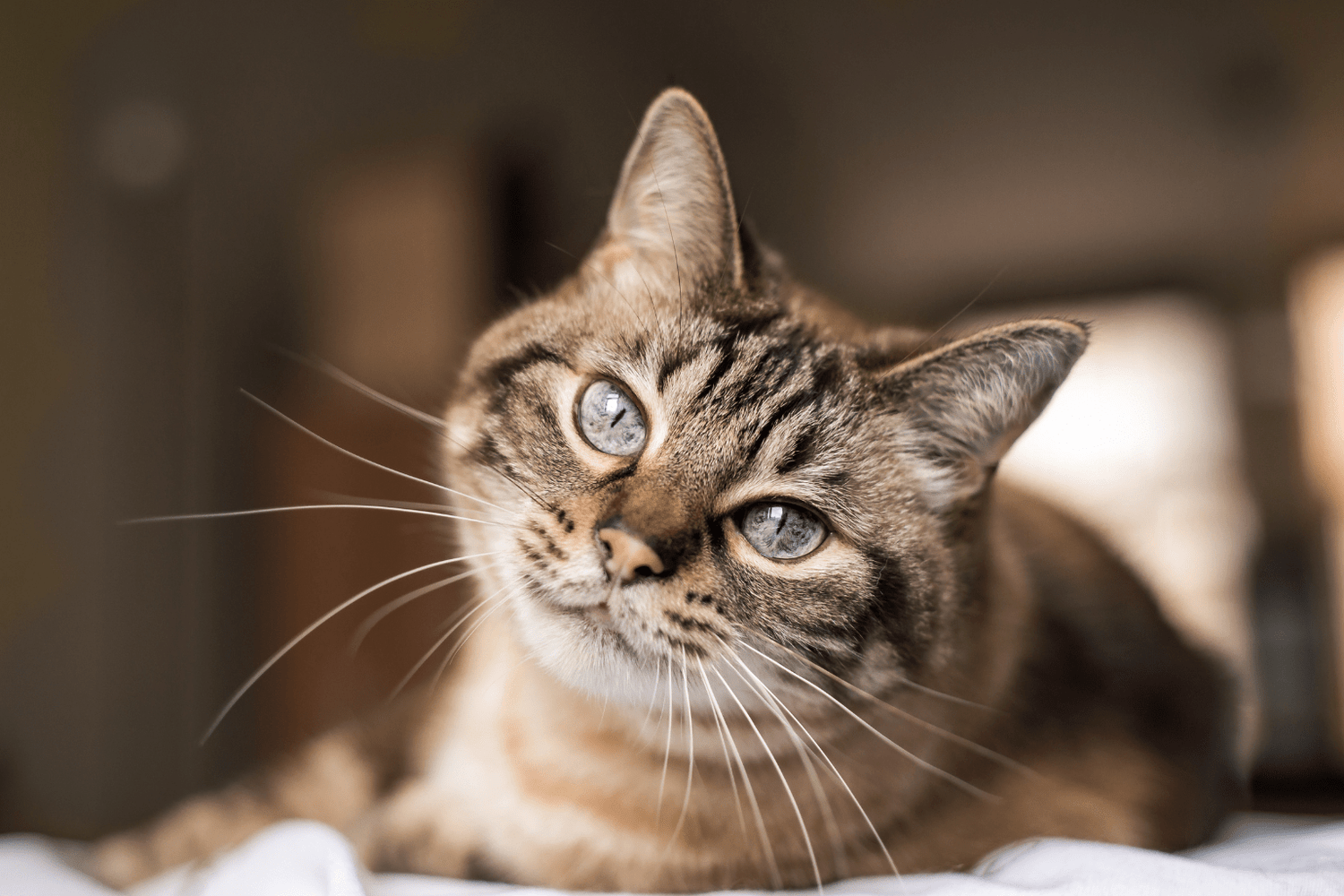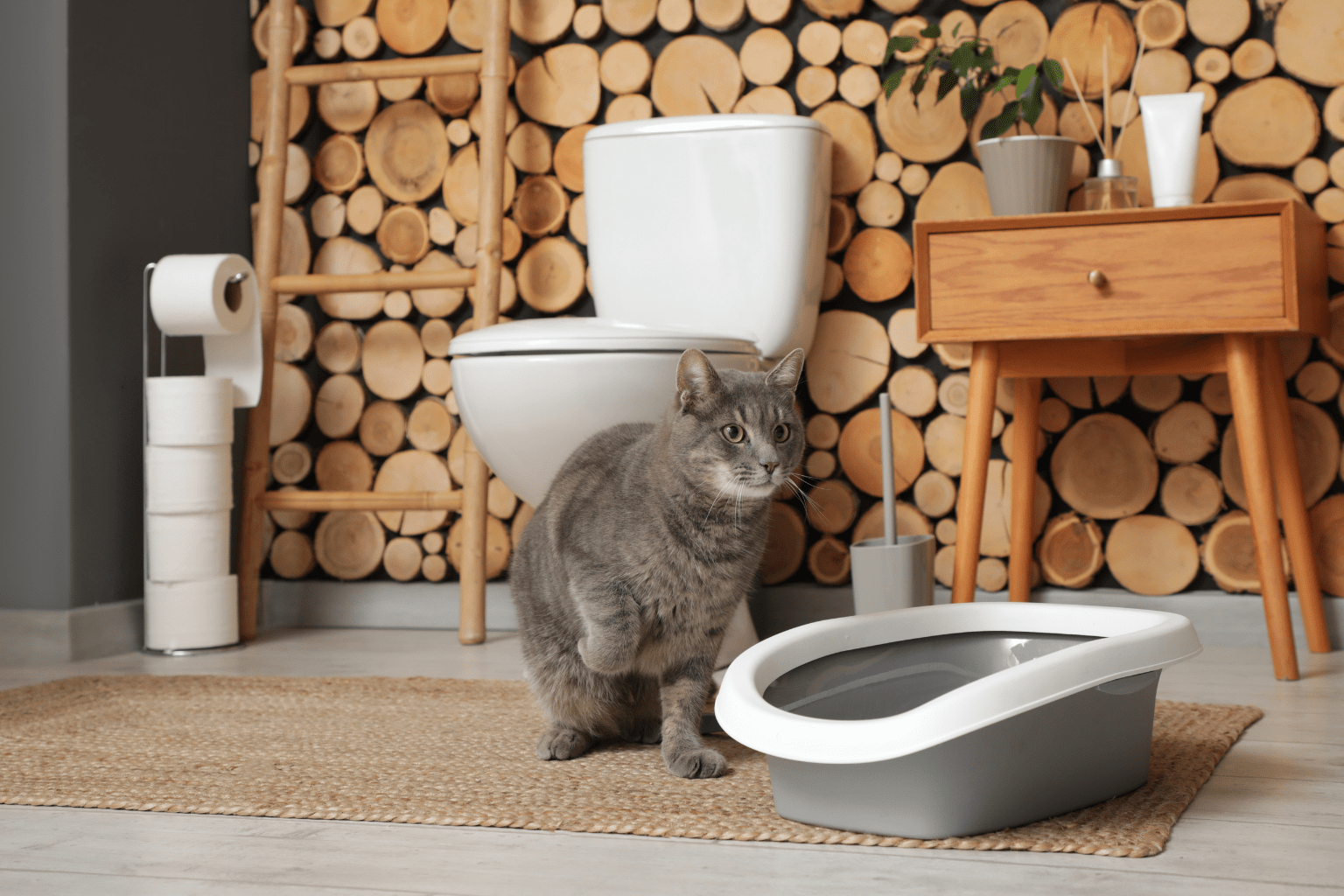Key Takeaways
- Small domestic cat breeds usually weigh between 4-10 pounds as adults.
- These cats retain their kitten-like charm throughout their lives.
- They offer the same personality traits as larger cats in a smaller size.
- Small domestic cats are ideal companions for families seeking adorable pets.
Table of Contents
- Why Small Domestic Cat Breeds Capture Our Hearts
- What Makes a Cat Breed "Small"? Understanding the Science
- Meet the World's Smallest Domestic Cats
- Small Cat Breeds, Personality and Lifestyle Compatibility
- Health Matters, Caring for Petite Cats Through Every Life Stage
- Choosing Your Perfect Small Cat, Practical Decision Making
- Everyday Care for Small Cat Breeds, Diet, Grooming & Play
- Living Small & Happy, Home Setup, Training, and Integration
- Small Cat Breeds vs. Large Cat Breeds, A Practical Comparison
- Problem-Solving for Small Cat Owners, Common Issues & Solutions
- Conclusion: Nurture With Nature, Celebrating Your Petite Feline's Best Life
- Future Considerations for Small Cat Breed Enthusiasts
- Conclusion: Celebrating Your Small Cat's Best Life
- Additional Resources & Support for Small Cat Owners
The Ultimate Guide to Small Domestic Cat Breeds: Choosing, Caring, and Thriving Together
Why Small Domestic Cat Breeds Capture Our Hearts
Small domestic cat breeds typically weigh between 4-10 pounds as adults, offering all the personality of their larger cousins in a more manageable package. These petite felines maintain their kitten-like charm well into adulthood, making them irresistible companions for families seeking that perpetual "aww" factor.
For families looking to support their petite companions' health, Cat Arthritis & Joint Pain Relief Remedy can help maintain mobility and comfort as your small cat ages.
Quick Facts: Small cat breeds generally weigh between 4–10 lbs as adults and often live 12-18 years with proper care.
The appeal goes beyond their adorable size. Small cat breed varieties excel in apartments, require less food, and are easier for children and seniors to handle safely. Their compact nature doesn't diminish their personalities, many small breeds are actually more social and playful than larger cats. Mary from our BestLife4Pets community shares how her 7-pound Singapura, Simba, became the perfect daily companion, providing comfort without overwhelming her during recovery from surgery.
For cats that may experience stress in new environments, consider our Cat Anxiety & Stress Relief Bundle (Calming & Immune Support) to help them adjust with ease.
What Makes a Cat Breed "Small"? Understanding the Science

Genetics determine whether cats stay small through natural selection or specific mutations affecting bone structure and growth hormones. Unlike kittens who will eventually grow, breeds of cats that stay small reach their full adult size by 12-18 months and maintain that compact stature throughout their lives.
Physical traits of small breeds include proportionally shorter legs (like Munchkins), compact torsos, and higher metabolisms relative to body size. The Singapura averages 4-8 pounds, while Cornish Rex cats typically weigh 5-9 pounds. These aren't runts or unhealthy cats, they're genetically programmed to be petite powerhouses.
| Breed | Adult Weight | Key Feature |
|---|---|---|
| Singapura | 4-8 lbs | Smallest recognized breed |
| Munchkin | 4-9 lbs | Short legs, normal torso |
| Devon Rex | 5-9 lbs | Curly coat, large ears |
| Cornish Rex | 5-10 lbs | Wavy coat, athletic build |
Meet the World's Smallest Domestic Cats
Munchkin – The Original Short-Legged Charmer
Best for: Families wanting a playful, adaptable companion
Munchkins weigh 4-9 pounds and are famous for their short legs caused by a genetic mutation. Despite their unique build, they're surprisingly agile and love interactive play. Their grooming needs are minimal, a weekly brush suffices for most coat types.
Singapura – The Petite Perfectionist
Best for: Seniors seeking a gentle, devoted companion
At 4-8 pounds, Singapuras hold the title for smallest breed. They're incredibly social, preferring to be wherever their humans are. Their short, ticked coat requires only occasional brushing, making them ideal low-maintenance companions.
Cornish Rex – The Curly-Coated Athlete
Best for: Active families who enjoy interactive play
These 5-10 pound cats sport distinctive wavy coats and boundless energy. They're natural climbers and jumpers, requiring vertical spaces and puzzle toys. Weekly gentle brushing maintains their unique coat texture without damaging the curls.
Devon Rex – The Pixie-Faced Companion
Best for: Allergy-sensitive households
Devon Rex cats weigh 5-9 pounds and have soft, curly coats that shed minimally. They're incredibly people-oriented, often perching on shoulders like parrots. Use a grooming mitt weekly to distribute natural oils and reduce allergens.
If your cat struggles with allergies or sensitivities, our Cat Allergy Relief & Immune Support Remedy can help support their immune system naturally.
Small Cat Breeds, Personality and Lifestyle Compatibility
Small cat breeds often retain kitten-like personalities well into adulthood, displaying higher energy levels and more social behavior than larger breeds. They tend to be more vocal, affectionate, and adaptable to change, traits that make them excellent family companions.
Most small breeds are naturally curious and playful, requiring mental stimulation through puzzle feeders and interactive toys. They're typically less territorial than larger cats, making them ideal for multi-pet households. The Cornish Rex and Devon Rex are particularly known for their dog-like loyalty, while Singapuras prefer quiet, consistent routines.
For more ideas on finding the right feline fit, check out our guide to the best cat breeds for your family.
Health Matters, Caring for Petite Cats Through Every Life Stage

Miniature cat breeds face unique health considerations due to their size and genetic backgrounds. Joint health becomes crucial, especially in breeds like Munchkins with altered bone structure. Small cats are also more prone to hypoglycemia and require consistent meal schedules to maintain stable blood sugar.
Regular veterinary checkups every 6 months help catch issues early, as small cats can deteriorate quickly when ill. Weight management is critical, even one extra pound represents a significant percentage increase for a 6-pound cat. Provide joint-friendly climbing options with gradual steps rather than high jumps.
Natural support through gentle homeopathic remedies can help maintain your small cat's vitality and joint comfort as they age. Our Cat Hip and Joint Pain Relief provides natural support for mobility and comfort without harsh side effects.
For cats with skin sensitivities or persistent itching, try our Cat Itchy Skin & Healthy Coat Remedy to help soothe and restore their coat health.
Important: These suggestions are not a substitute for professional veterinary advice. Always consult your veterinarian for health concerns.
Choosing Your Perfect Small Cat, Practical Decision Making
Match breed characteristics to your lifestyle before falling in love with adorable kitten photos. Start by evaluating your living situation, family dynamics, and long-term commitment capacity.
Visit reputable breeders or rescue organizations to meet cats in person. Observe how potential companions interact with you and your family members. A well-socialized small cat should show curiosity rather than fear, and display the breed's characteristic temperament traits.
Essential Questions Before Adoption
- Does this breed's energy level match our household activity?
- Can we manage the grooming requirements long-term?
- Are there children or elderly family members who need gentle, predictable pets?
- What health guarantees does the breeder or rescue provide?
Research the source thoroughly. Responsible breeders provide health clearances, allow facility visits, and offer ongoing support. Many small domestic cat breeds thrive when rescued from shelters, where you can often find mixed breeds with petite genetics and wonderful temperaments.
Everyday Care for Small Cat Breeds, Diet, Grooming & Play
Portion control becomes critical with petite cats who can gain weight quickly on standard feeding amounts. Most small domestic cat breeds require 1/4 to 1/2 cup of high-quality dry food daily, divided into multiple small meals to prevent hypoglycemia.
Grooming needs vary dramatically by coat type. Cornish and Devon Rex cats need weekly gentle brushing with soft bristles, while Turkish Angoras require daily attention to prevent matting. Short-haired breeds like Singapuras need minimal grooming but benefit from regular nail trims and dental care.
Learn more about the importance of dental hygiene in cats in our article on why brush cats teeth.
Create enrichment opportunities scaled to their size. Provide climbing trees with platforms no higher than 4-5 feet to prevent injury from falls. Interactive puzzle feeders work excellently for intelligent breeds like Abyssinians, while gentle laser pointers satisfy hunting instincts safely.
For ongoing wellness support, many pet parents choose natural supplements that work with their cat's body rather than masking symptoms. Our gentle pellet remedies support joint health, digestive comfort, and overall vitality without the side effects often seen with harsh medications.
If your cat struggles with digestive issues, our Cat Laxative & Constipation Remedy offers gentle relief to keep your small cat comfortable.
Living Small & Happy, Home Setup, Training, and Integration

Safety-proof your space by blocking gaps behind appliances where curious small cats might become trapped. Install baby gates at the top of stairs and secure loose cords that could pose strangulation risks to lightweight pets.
Litter box placement requires special consideration for breeds with short legs like Munchkins. Choose boxes with lower sides (2-3 inches) and place them in easily accessible locations. Some owners find that having multiple boxes on each floor prevents accidents from cats who can't reach facilities quickly enough.
Introduce small cats to other pets gradually over 7-14 days. Their petite size can trigger prey drive in dogs or intimidate them around larger cats. Use baby gates to allow visual contact while maintaining physical separation during initial meetings.
Success story: Rachel, who manages multiple rescue cats, found that her 6-pound Japanese Bobtail, Luna, integrated beautifully when given a dedicated "safe room" with elevated perches where she could observe household activity from security.
Small Cat Breeds vs. Large Cat Breeds, A Practical Comparison
| Factor | Small Breeds (4-10 lbs) | Large Breeds (12-20+ lbs) |
|---|---|---|
| Living Space | Apartment-friendly, less territorial | Need more room to roam |
| Food Costs | $20-40 monthly | $40-70 monthly |
| Handling Ease | Easy for children/seniors | May be challenging for some |
| Exercise Needs | Moderate, indoor-focused | Higher, may want outdoor access |
| Lifespan | 14-18 years typically | 12-16 years typically |
Choose small breeds if you live in compact spaces, have limited mobility, or want a cat that maintains kitten-like playfulness throughout life. Their lower food and medication costs make them budget-friendly for fixed-income households.
Consider larger breeds if you have ample space, want a more independent personality, or prefer cats that can handle rougher play with children. Some families find larger cats easier to locate and less likely to hide in small spaces. For more on large breeds, see our article on the top 10 large dog breeds for a fun comparison.
Problem-Solving for Small Cat Owners, Common Issues & Solutions
Weight fluctuations require immediate attention in petite cats. A one-pound loss represents 10-20% of total body weight, equivalent to a 150-pound person losing 15-30 pounds. Monitor eating habits daily and consult veterinarians about any appetite changes lasting more than 24 hours.
Hypoglycemia affects some small domestic cat breeds, particularly during stress or illness. Keep corn syrup handy for emergencies, but focus on prevention through frequent small meals and consistent routines. Signs include lethargy, trembling, or disorientation.
Injury prevention becomes paramount with delicate bone structures. Teach children gentle handling techniques and supervise interactions with larger pets. Provide soft landing surfaces near favorite perches and consider carpeted cat trees over hard wooden ones.
Many families find success supporting their small cats' wellness naturally. Bailey, a 7-pound Toybob, experienced improved mobility and comfort within days of starting a gentle joint support routine with our Cat Hip and Joint Pain Relief that works alongside her body's healing processes.
For additional general care tips, refer to the ASPCA's general cat care guide.
Not a substitute for professional veterinary advice.
Conclusion: Nurture With Nature, Celebrating Your Petite Feline's Best Life

Small domestic cat breeds bring immeasurable joy through their kitten-like charm, adaptable personalities, and deep family bonds that last 15+ years. These petite companions prove that the best things truly come in small packages, from their space-efficient needs to their outsized personalities.
Your journey with a small cat becomes richer when supported by natural, gentle care approaches that honor their delicate systems. Rather than waiting for problems to develop, proactive wellness support helps these special cats maintain their vitality and playful spirits throughout their lives.
The BestLife4Pets community celebrates thousands of small cat success stories, from senior-friendly Singapuras to apartment-dwelling Devon Rex cats thriving on natural wellness routines. When we nurture with nature, we give our petite felines their absolute best chance at long, happy, comfortable lives filled with purrs, play, and unconditional love.
For more scientific insight into feline genetics and breed development, see this research article on domestic cat breeds.
Future Considerations for Small Cat Breed Enthusiasts
The world of small domestic cat breeds continues evolving as breeders focus on health, temperament, and sustainability. Emerging trends show increased interest in naturally small breeds rather than those bred for extreme miniaturization.
Health-First Breeding: Responsible breeders now prioritize genetic diversity and health testing over achieving the smallest possible size. This means healthier, longer-lived cats with stable temperaments.
Senior-Friendly Companions: As our population ages, small cats increasingly serve as ideal companions for seniors. Their manageable size, lower care demands, and therapeutic presence make them perfect for assisted living situations.
Urban Living Adaptation: City dwellers drive demand for apartment-suitable cats. Breeds that stay small while maintaining robust health and adaptable personalities will likely see increased popularity.
Natural Wellness Integration: Pet parents increasingly seek holistic care approaches. Supporting your small cat's wellness with natural remedies, proper nutrition, and preventive care creates the foundation for their best possible life.
Conclusion: Celebrating Your Small Cat's Best Life
Choosing among the many wonderful small domestic cat breeds means welcoming a lifetime of joy, companionship, and endless entertainment into your home. These petite felines prove that the best things truly come in small packages, offering all the love, personality, and charm of larger cats in perfectly compact forms.
Whether you've fallen for the playful antics of a Munchkin, the elegant grace of a Singapura, or the curly-coated charm of a Devon Rex, your small cat deserves care that honors their unique needs. From providing appropriately sized spaces and toys to supporting their health with gentle, natural wellness approaches, every choice you make contributes to their happiness.
At BestLife4Pets, we celebrate the special bond between pet parents and their small cats. Our community of thousands shares stories, advice, and support because we understand that these tiny family members leave the biggest paw prints on our hearts. When we nurture with nature, choosing gentle homeopathic support, species-appropriate nutrition, and loving care, we give our small cats their best chance at long, vibrant, joy-filled lives.
Your small cat's journey toward optimal wellness starts with understanding, continues with consistent care, and flourishes with the kind of natural support that works in harmony with their body's own healing wisdom.
Frequently Asked Questions
What genetic factors contribute to a domestic cat breed remaining small throughout its life?
Small domestic cat breeds inherit genes that regulate growth and body size, often resulting in lighter bone structure and muscle mass. These genetic traits keep them petite without affecting their overall health or vitality, allowing them to maintain a kitten-like appearance well into adulthood.
How do the personalities and care needs of small domestic cat breeds compare to those of larger cats?
Small domestic cats share many personality traits with larger cats, such as playfulness, curiosity, and affection, but their compact size often makes them more approachable and easier to handle. Their care needs are similar, balanced diet, regular grooming, and mental stimulation, but portion sizes and space requirements tend to be smaller, making them ideal for apartments or smaller homes.
What are some common health considerations and recommended care practices for small domestic cat breeds?
Small cats benefit from a diet tailored to their size and metabolism to maintain healthy weight and energy levels. Regular grooming and dental care support their overall wellness, while gentle joint and stress relief remedies can help maintain comfort as they age. Providing a safe, enriched environment encourages activity and reduces anxiety.
Which small domestic cat breeds are best suited for families with children or seniors, and why?
Breeds known for their gentle, social, and adaptable nature, like the Singapura or Munchkin, are great for families with children or seniors. Their smaller size makes them easier to hold and less intimidating, while their playful yet calm personalities foster positive interactions and companionship across all ages.



